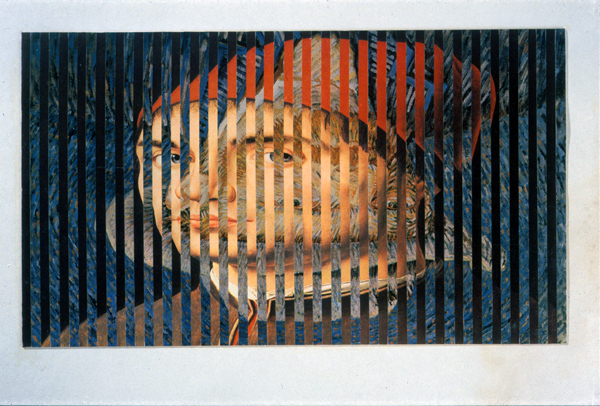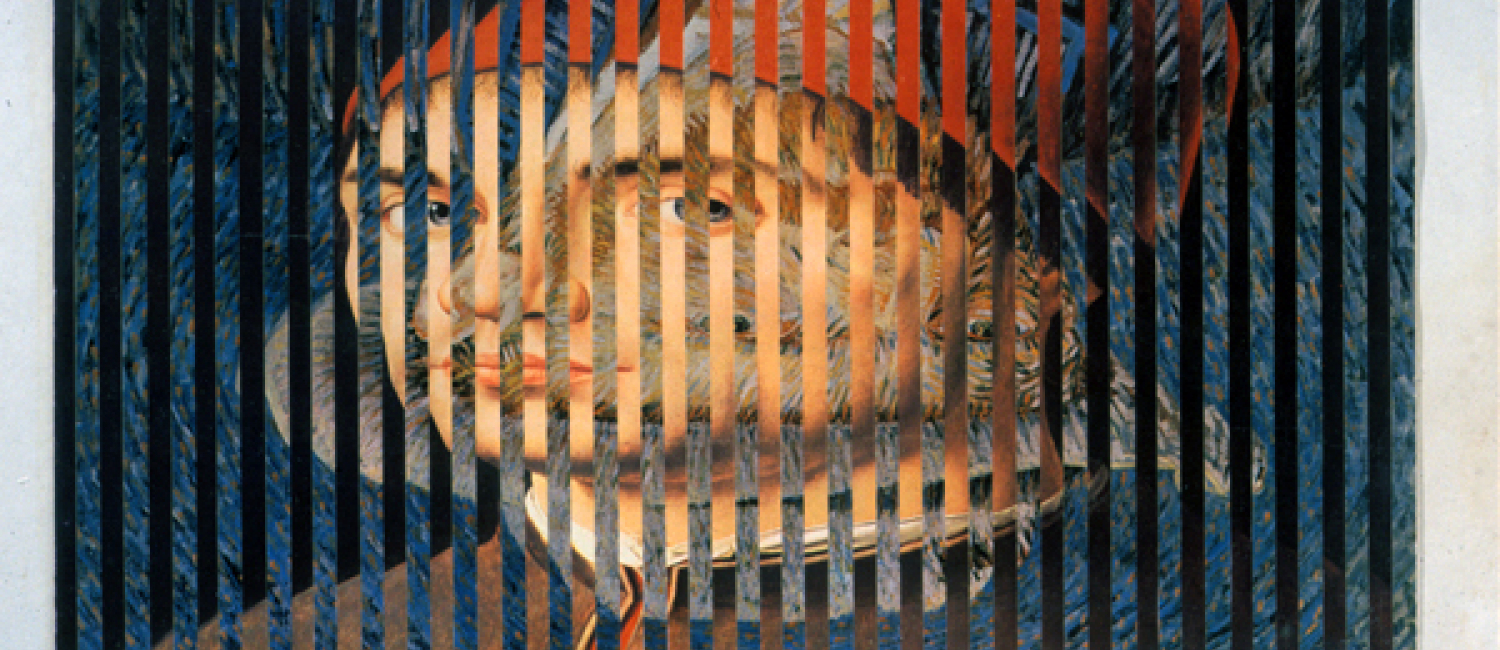Collages by Jiři Kolář
From the collection of Meda and Jan Mladek
A programme of the Budapest Autumn Festival
October 22 –- November 29, 1998
From the late 1960s, Meda and Jan Mladek, Czech emigrés living in Washington, DC, collected with much enthusiasm works by Jiři Kolář. In 1993, to mark the 80th birthday of the Czech poet and artist, Meda Mladek decided to donate her Kolář collection to the Czech Foundation of Central European Art in Prague. The Ludwig Museum Budapest – - Museum of Contemporary Art now presents this collection, which embraces all the important periods in the oeuvre of Kolář.
Kolář was born in 1914 in the south of Bohemia. In the early 1940s he was one of the founders of the artists group called Skupina 42 (Group 42). The members of the group, art historians, painters, a sculptor, a photographer and poets, had an important influence on Czech cultural life. At that time Kolář had already published his first selection of poems Krestný list (Birth Certificate), followed by many other poetry books, such as Limb a jine basne (Limbo and other poems), Sedm kantat (Seven Cantatas) in 1945 and Dny v roce (Days of the Year) in 1947. Despite being sentenced to nine months in prison in 1953 and the fact that his writings were prohibited, Kolář’ didn’t despair. The 1960s and 1970s were a period of constant experimentation, discovering and perfecting new collage techniques. The Dictionary of Techniques, first edited in 1979, gives a summary of almost 120 collage techniques, such as rollage, magrittage and intercollage. During a journey in Paris in 1980 Kolář decided at once to settle down in the French capital where he still lives.
In his work Kolář conveys not only a sense of humour, a love of experimentation and a passion for creation, but also a profound reflection on the essence of our being, its meaning and the ways of revealing it.
Curators of the exhibition: Richard Drury (Prague), Franciska Zólyom (Budapest)

